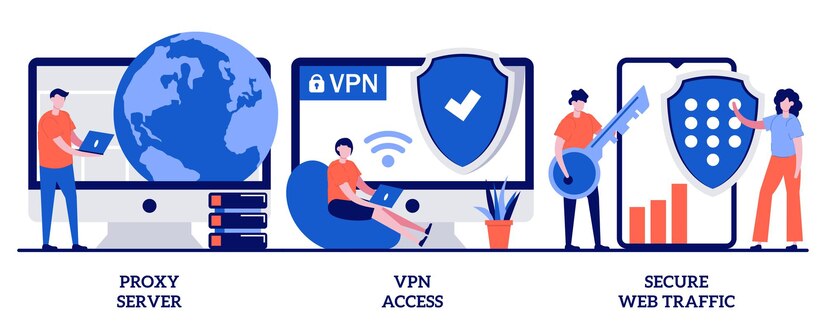Navigating the Web Safely: A Beginner’s Guide to VPNs
In the ever-expanding digital world, where online privacy and security are of utmost concern, understanding the fundamentals of Virtual Private Networks (VPNs) is essential. If you’re new to the concept of VPNs or simply seeking to enhance your online security, this beginner’s guide will provide you with the necessary knowledge to navigate the web safely with VPNs.

1) What is a VPN?
A VPN, or Virtual Private Network, is a technology that establishes a secure and encrypted connection over the internet. It acts as a protective tunnel between your device and the internet, safeguarding your online activities from potential threats by encrypting your data and routing it through remote servers.
2) Why Use a VPN?
The benefits of using a VPN extend beyond just privacy protection:
Enhanced Privacy: By encrypting your internet traffic and masking your IP address, VPNs ensure that your online activities remain private and anonymous, shielding your sensitive information from prying eyes.
Security on Public Wi-Fi: Public Wi-Fi networks are notoriously insecure, making them prime targets for hackers. With a VPN, your connection is encrypted, providing a secure pathway for your data to travel, even on unsecured Wi-Fi hotspots.
Bypassing Geo-Restrictions: VPNs allow you to bypass geo-restrictions by connecting to servers in different locations worldwide. This enables you to access region-locked content and enjoy unrestricted internet access, regardless of your physical location.
Protection Against Online Surveillance: In an era of pervasive surveillance, VPNs serve as a crucial defense mechanism. By encrypting your internet traffic, VPNs make it exceedingly difficult for third parties to monitor or track your online behavior, preserving your digital privacy.
3) How to Use a VPN?
Using a VPN is straightforward:
Choose a Reputable VPN Provider: Start by selecting a reputable VPN provider that prioritizes security and privacy.
Download and Install the VPN Application: Once you’ve chosen a provider, download and install their VPN application on your device(s).
Launch and Connect: Launch the VPN application, log in with your credentials, and select a VPN server location from the available options. Finally, click connect to establish a secure VPN connection.
Conclusion:
In conclusion, VPNs play a vital role in navigating the web safely and securely. Whether you’re concerned about protecting your privacy, accessing restricted content, or securing your data on public networks, VPNs provide the necessary tools to safeguard your online activities. By following the guidance outlined in this beginner’s guide, you can embark on your digital journey with confidence and peace of mind, knowing that your online privacy and security are in good hands.